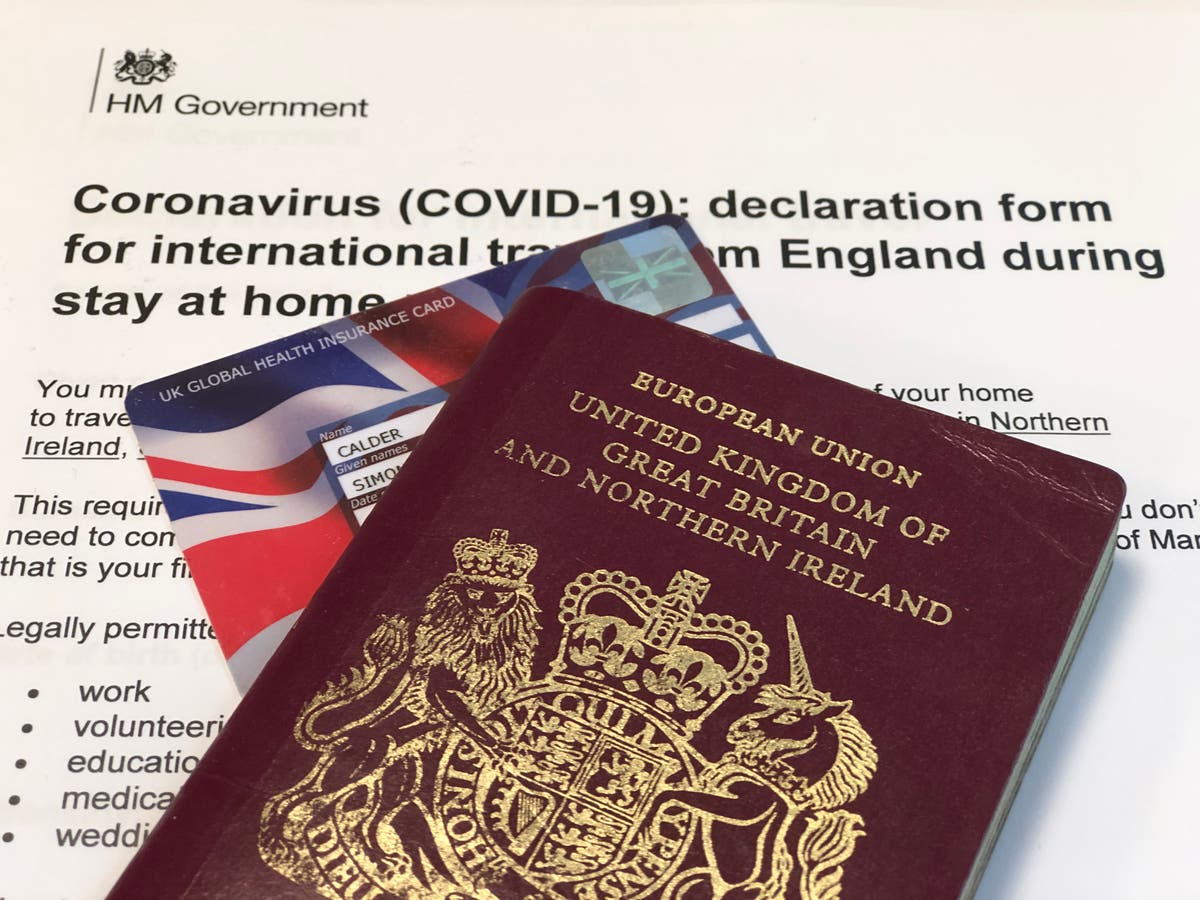Heathrow third runway will go ahead, says airport boss – but expect bigger planes in the meantime
Exclusive: CEO of the UK’s busiest airport says short-term plan is to expand capacity by using larger aircraft

Support truly
independent journalism
Our mission is to deliver unbiased, fact-based reporting that holds power to account and exposes the truth.
Whether $5 or $50, every contribution counts.
Support us to deliver journalism without an agenda.

Heathrow airport’s chief executive says plans for a third runway are being “revived” – while in the short term, bigger planes will extract more capacity from the world’s most overstretched pair of runways.
Thomas Woldbye was speaking to The Independent after announcing record-breaking passenger numbers for Heathrow – which is by far the UK’s busiest airport.
In the six months between January and June, 39.8 million passengers travelled through Heathrow – one million more than during the first half of 2019, before the pandemic.
Heathrow is the busiest two-runway airport in the world, with a cap of 1,315 movements per day. Demand is so strong that, in 2019, 99.15 per cent of that capacity was used.
Successive governments have given the green light to a third runway at Heathrow, though plans for expansion continue to be subject to legal challenges. But the airport’s chief executive believes such obstacles will be overcome.
Mr Woldbye said: “We are looking at the long term, and that includes, obviously, a third runway. And we are still working on what is the best solution for that, and how do we get there, how do we get that plan in motion.
“We are working and spending money on reviving that project.”
In 2015, the Davies Commission recommended a third runway be built to the north of the existing pair, increasing capacity to more than 2,000 movements per day.
But a combination of political turmoil, a prime minister – Boris Johnson – who had vowed to “lie down in front of the bulldozers” to stop expansion at Heathrow, and the Covid pandemic halted plans.
The new Labour government has indicated that it will approve a revised expansion plan as part of a “dash for growth” if Heathrow can meet strict environmental standards.
But Rob Barnstone, from the No 3rd Runway Coalition, said: “Heathrow is already the country’s biggest polluter. It will need to be mindful that any plans for a third runway will require sign-off from ministers who only confirmed this week that they will be subject to four tests, including on binding climate laws, air and noise pollution.
“Heathrow have an almighty, if not impossible, task at overcoming these hurdles.”
Meanwhile the airport chief executive said more passengers will be able to use Heathrow. Mr Woldbye said: “We are looking at what we can do in the short term with the two runways to increase capacity. We will not get more movements, but we will get bigger aircraft.”
He also called on ministers to scrap the demand that transit passengers at Heathrow must obtain an electronic travel authorisation (ETA) even if they are only in transit for an hour or two. “We do not understand why [ETAs] should affect transfer passengers. We don’t see a reason for making British aviation less competitive than that of our competitors on the continent.”
The rollout of ETAs as planned by the last government has been paused while Labour ministers consider how to proceed.
Heathrow airport made an underlying profit of £178m in the first half of this year, compared with a loss of £139m a year earlier.
The Civil Aviation Authority, which regulates charges at Heathrow, has reduced the cap on how much the airport can charge.
Mr Woldbye said: “We don’t believe we got the right settlement. We need to invest in the passenger journey and the airline journey.
“These are big investments and we need a robust cash flow for that. I think we should have had a different settlement.”

 BigThink
BigThink 






























![Are You Still Optimizing for Rankings? AI Search May Not Care. [Webinar] via @sejournal, @hethr_campbell](https://www.searchenginejournal.com/wp-content/uploads/2025/06/1-1-307.png)